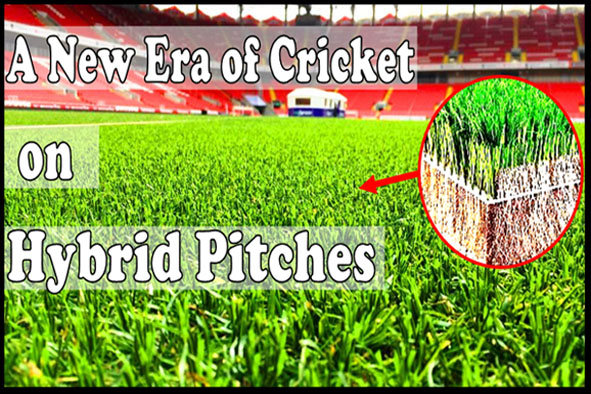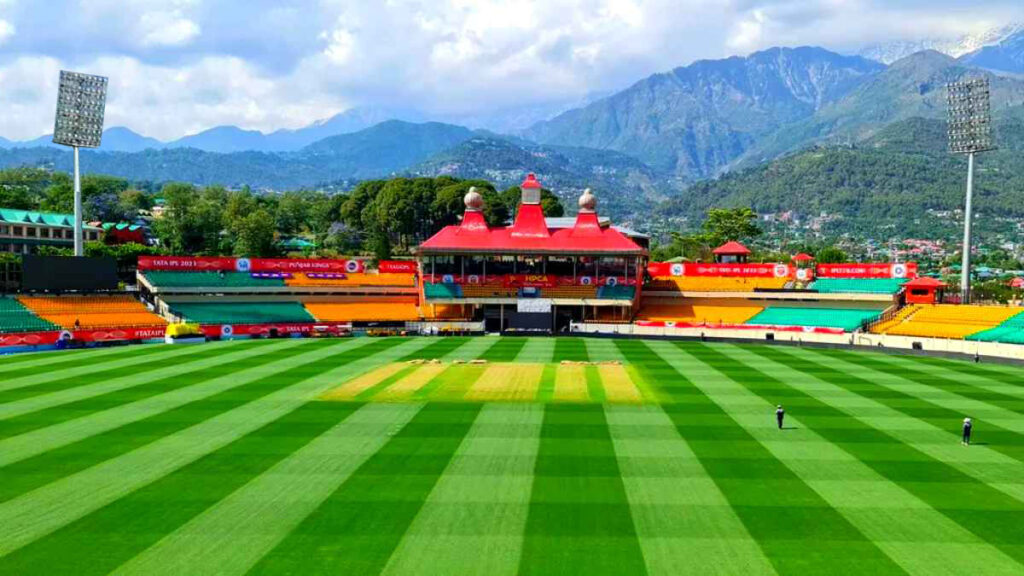New Era of Cricket on Hybrid Pitches
Introduction
Cricket, often referred to as a gentleman’s game, has taken a significant leap forward with the advent of hybrid pitches and witnessed a significant innovation in the history of cricket. One These innovative and cutting-edge playing surfaces combine the best of natural turf and synthetic fibers, promising a new era in cricket. India, a cricket-loving nation, recently unveiled its first-ever hybrid pitch at the Himachal Pradesh Cricket Association (HPCA) stadium in Dharamsala. Let’s explore the significance of this innovation for Indian cricket.
Understanding Hybrid Pitches
What Are Hybrid Pitches?
Hybrid pitches are a fusion of natural grass and synthetic fibers. Unlike traditional natural pitches, which rely solely on grass, hybrid pitches incorporate a small percentage of synthetic material. Typically, these pitches consist of 95% natural turf and 5% synthetic fibers injected into the surface.
Benefits of Hybrid Pitches
- Enhanced Durability and Consistent Playability:
- The combination of natural grass and synthetic fibers results in a more robust playing surface.
- These pitches withstand wear and tear better than purely natural pitches, especially during multi-day matches.
2. Reduced Strain on Ground Staff:
- Maintaining natural pitches requires extensive care, including regular watering, mowing, and rolling.
- Hybrid pitches reduce the workload for ground staff, as they require less frequent maintenance.
3. Maintained Quality Playing Conditions:
- Players can expect consistent bounce, pace, and turn throughout a match.
- The synthetic fibers help stabilize the surface, preventing excessive wear and unpredictable behaviour.
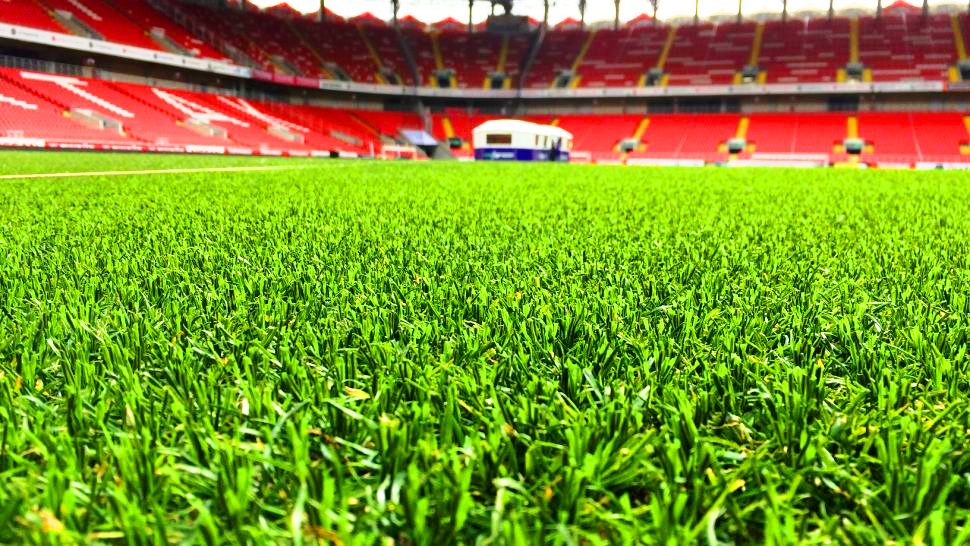

Comparison with Natural Pitches
Preparation Process and Renovation:-
i. Preparation Process:
- Hybrid Pitches:The preparation of a hybrid pitch closely mirrors that of a fully natural pitch. Groundsmen follow the same steps, from soil preparation to grass seeding.
- Natural Pitches:Traditional natural pitches rely solely on natural grass growth.
ii. Reduced Renovation Work:
Hybrid Pitches:
- After a match, the amount of renovation work needed before the next game is significantly lower.
- Ground staff faces less pressure because hybrid pitches can be played on up to three times longer than natural turf pitches.
Natural Pitches:
- Between matches, natural pitches require extensive renovation:
- Digging up the surface.
- Relaying the grass.
- Ensuring consistent bounce and behavior.
- This process is time-consuming and resource-intensive.
iii. Challenges and Behavior Patterns:
Hybrid Pitches:
- While hybrid pitches promise consistent playability, replicating natural surface behavioral patterns remains a challenge.
- Groundsmen must strive to maintain the same characteristics as the match progresses.
Natural Pitches:
- Natural pitches evolve during a game:
- Grass wears down.
- Footmarks and cracks develop.
- Spinners find purchase.
- These dynamic changes add to the excitement but can be unpredictable.
iv. Control and Adaptation:
Hybrid Pitches:
- Groundsmen have more control over hybrid surfaces.
- Adjustments can be made to suit match conditions.
Natural Pitches:
- Captains and players adapt to the changing pitch behaviour.
- The challenge lies in reading the surface and adjusting strategies accordingly.
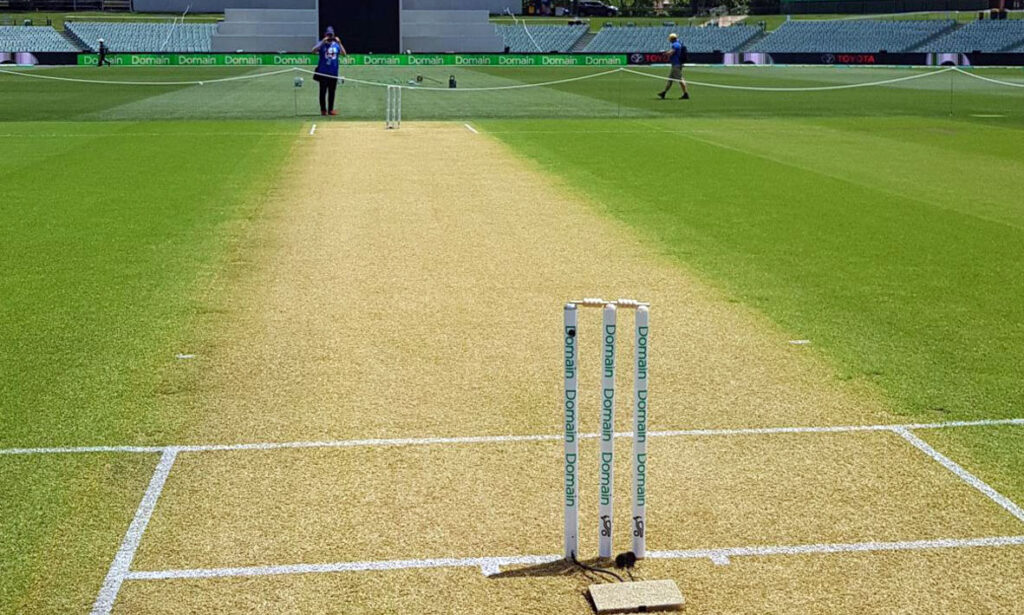
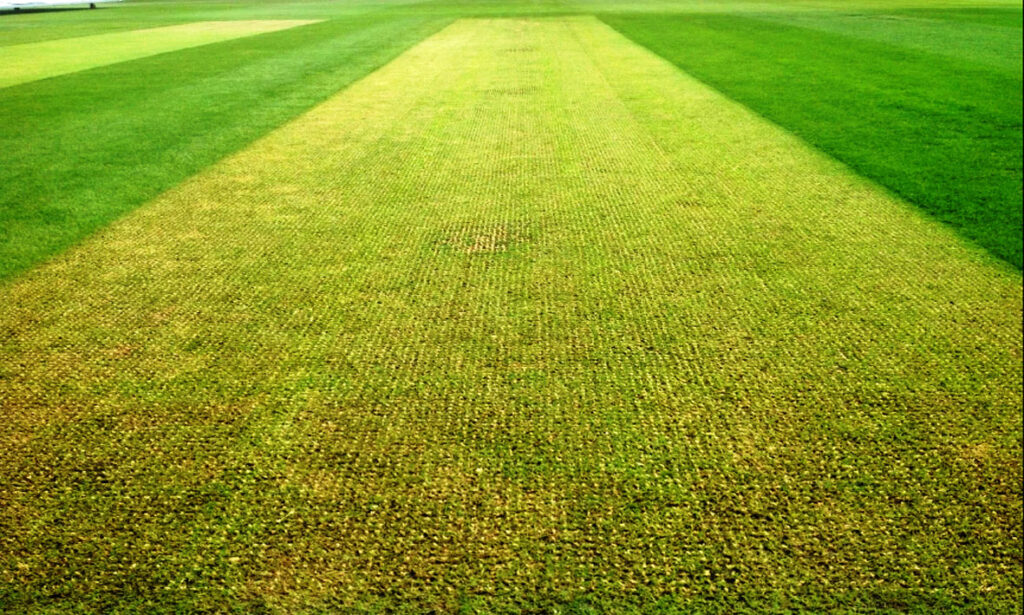
Process of Installation of Hybrid Pitch
i.) Project Undertaking:
- The HPCA decided to install four hybrid wickets at the picturesque venue of Dharamshala.
- The project was undertaken by SISGrass, a UK-based company specialized in synthetic turf production.
- IPL Chairman Arun Dhumaland former England cricketer Paul Taylor, who serves as SIS’s international cricket director, attended the inauguration ceremony.
ii.) Difference from Traditional Pitches:
- The hybrid pitch combines natural turf with synthetic fibers to make it more durable, reducing wear and tear across a full-fledged season.
- With the usage of five percent artificial material, the wickets ensure that the traditional characteristics of a cricket pitch are retained.
- Notably, the Dharamshala outfield faced criticism during the 2023 ODI World Cup for its outfield and wicket.
iii.) The ‘Universal Machine’:
- The installation process involves the use of the ‘Universal Machine’, which was originally manufactured by SISGrass in 2017.
- This machine injects the polymer fibers into the natural turf, creating the hybrid surface.
- The completed installations are still predominantly natural grass, with only a small percentage of polymer fibers to maintain the characteristics of an all-natural pitch.
Impact on Indian Cricket
IPL Chairman Arun Dhumal’s Perspective
Arun Dhumal, the Chairman of the Indian Premier League (IPL), has expressed enthusiasm about the introduction of hybrid pitches. His perspective sheds light on how this innovation could revolutionize the game:
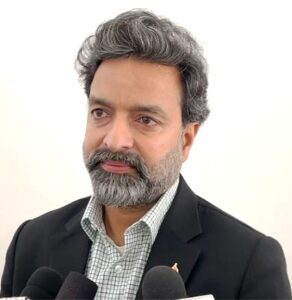
i. Consistent Playing Conditions:
- Hybrid pitches promise a consistent playing surface throughout a match.
- Batsmen and bowlers can adapt better, knowing that the pitch behavior won’t drastically change over time.
- This predictability enhances the quality of cricket and makes it more exciting for fans.
ii. Strategic Implications:
- Captains and coaches can plan their strategies more effectively.
- The stability of hybrid pitches allows teams to focus on skill-based tactics rather than adjusting to unpredictable pitch variations.
iii. Domestic Cricket Development:
- As hybrid pitches gain popularity, they will likely be adopted in domestic cricket tournaments across India.
- This standardization will benefit young cricketers, as they’ll train and compete on surfaces similar to those used in international matches.
# Future Installations:-
i.) Mumbai and Ahmedabad:
- India’s cricket hubs, Mumbai and Ahmedabad, are next in line for hybrid pitch installations.
- These cities host high-profile matches, including IPL games and international fixtures.
- The introduction of hybrid pitches will elevate the quality of cricket played in these venues.
ii.) International Matches:
- The success of the Dharamsala hybrid pitch has caught the attention of cricket boards worldwide.
- Expect to see more international matches played on hybrid surfaces, especially in limited-overs formats.
# ICC Approval:
i.) T20s and ODIs:
- The International Cricket Council (ICC) has officially approved the use of hybrid pitches in T20s and ODIs.
- This endorsement reflects the governing body’s confidence in the technology’s ability to enhance the game.
ii.) Balancing Tradition and Innovation:
- Hybrid pitches represent a harmonious blend of tradition (natural grass) and innovation (synthetic fibers).
- The ICC’s approval acknowledges the need to adapt while preserving the essence of the sport.
In summary, hybrid pitches are poised to reshape Indian cricket by providing stability, strategic advantages, and a level playing field. As players adapt to this new era, fans can look forward to thrilling contests on surfaces that combine the best of both worlds.
Conclusion: Paving the Way for Cricket’s Future
The advent of hybrid pitches marks a significant milestone in cricket’s evolution. As India embraces this innovation, players, fans, and administrators eagerly anticipate a more level playing field. With improved durability, consistent playability, and reduced maintenance, hybrid pitches promise to shape the future of the sport. As we witness the dawn of this new era, cricket enthusiasts can look forward to thrilling matches played on surfaces that blend tradition with modernity.
The fusion of tradition and innovation on these hybrid pitches promises an exciting future for cricket. As players adapt to this new era, fans can look forward to thrilling contests played on surfaces that blend the best of both worlds.
Hybrid pitches offer a balance between tradition and innovation. While they provide stability and reduced maintenance, natural pitches retain their unique charm and variability. As cricket evolves, both types of surfaces contribute to the rich tapestry of the game.
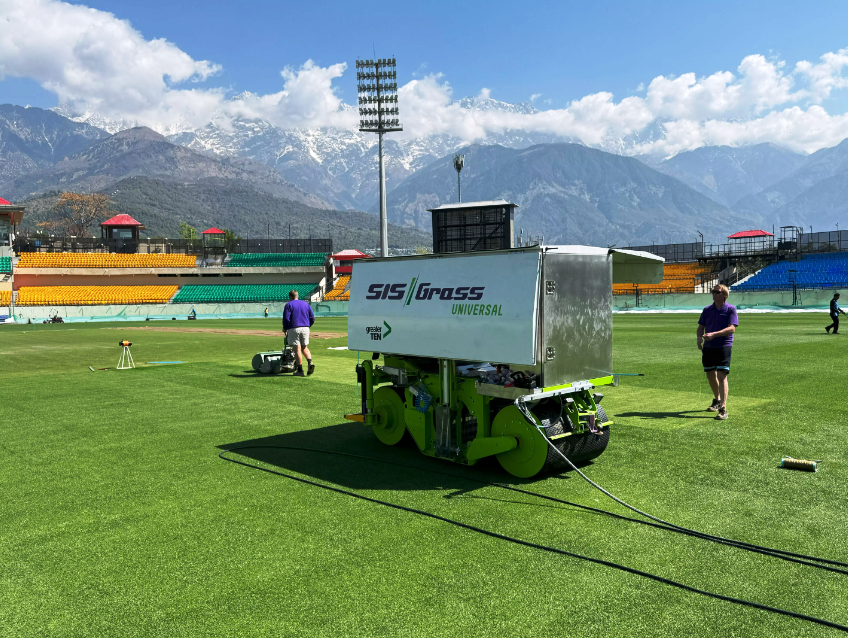
As we wrap up our exploration of hybrid pitches, let’s reflect on their impact and the exciting possibilities they bring to Indian cricket. Here’s why this innovation matters:
i.) Consistency Wins Matches:
- “In cricket, consistency is key. Hybrid pitches provide that consistency,” says former Indian captain Anil Kumble.
- Data from the Dharamsala match reveals that batsmen faced similar conditions throughout, allowing them to focus on their game rather than adapting to unpredictable surfaces.
ii.) Reduced Downtime, More Action:
- “Hybrid pitches are a game-changer,” remarks Harsha Bhogle, renowned cricket commentator.
- With less renovation work between matches, stadiums can host back-to-back games, keeping fans engaged and players in rhythm.
iii.) A Level Playing Field:
- “Cricket is about skill, not luck,” emphasizes Sunil Gavaskar, legendary Indian opener.
- Hybrid pitches ensure fairness by minimizing external factors that can sway results.
iv.) Global Adoption:
- England’s Lord’s Cricket Ground plans to introduce hybrid pitches in county cricket.
- The ICC’s approval signals a global shift toward embracing this technology.
In conclusion, as the sun sets on traditional grass pitches, the dawn of hybrid surfaces promises an exciting chapter in cricket’s history. Let’s celebrate innovation, adaptability, and the spirit of the game.

